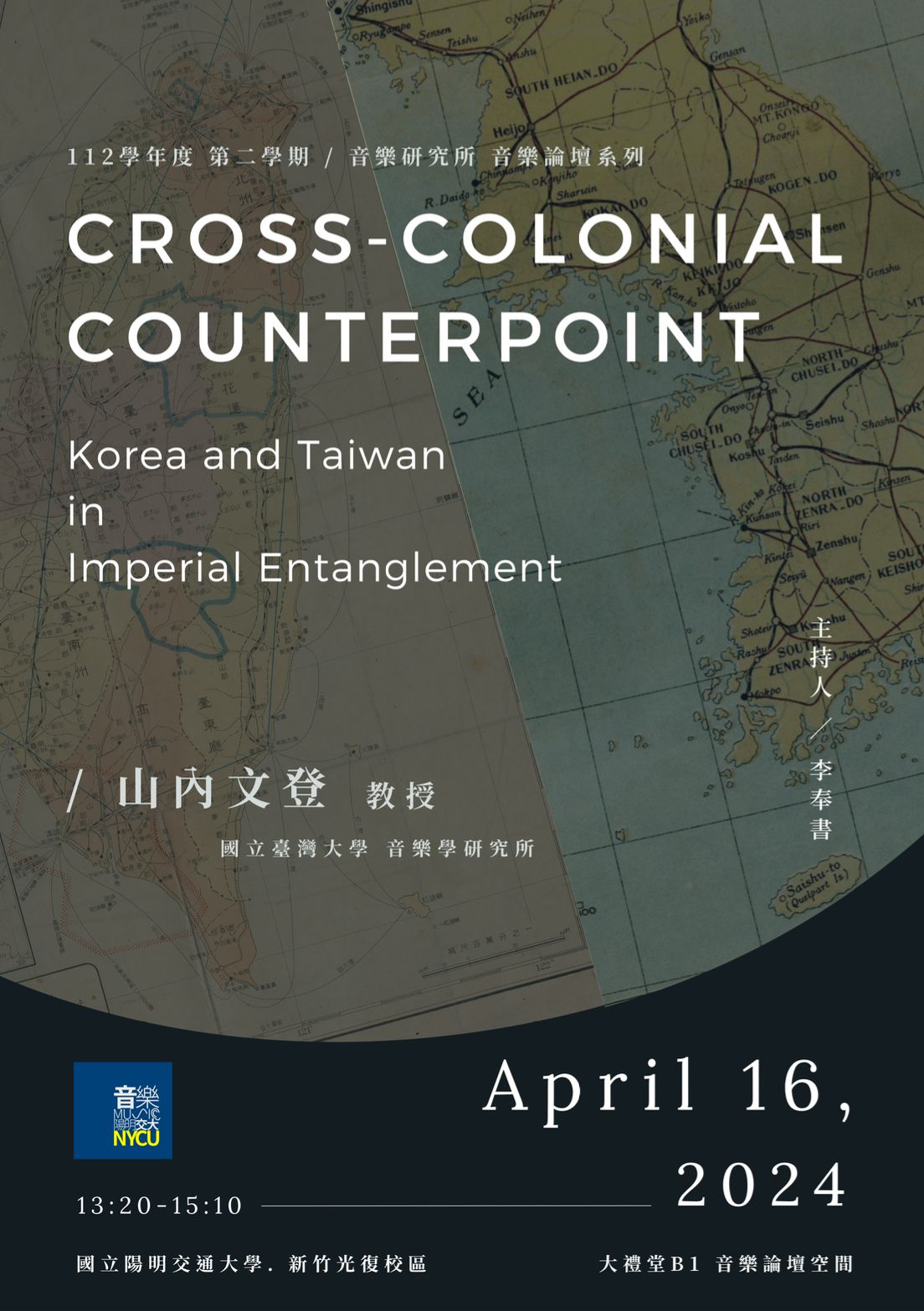- ‐

Abstract
An imperative within global musicology is to (re)examine research subjects within an interconnected and
intertwined worldwide ecology. This necessity becomes apparent when revisiting colonial history, during which
the entire world was divided and ruled by a handful of modern colonial empires. In his work Culture and
Imperialism (1993), Edward Said elaborates on a “counterpuntal” perspective, advocating for the exploration of
“intertwined histories” across differentiated socio-cultural and textual domains. Music historians have similarly
explored global colonial networks, as seen in notable works like David Irving’s Colonial Counterpoint: Music in
Early Modern Manila (2010). However, a challenge in global music history arises from the prevalent tendency to
reduce the quest for interconnectivity to the examination of a single colony in relation to its metropole.
Consequently, the reference point in music history in colonial settings often remains the former metropole and its
competing allies, detached from other colonies. This approach, even if critical, somehow reproduces the very
colonial structure wherein imperial divisions of labor were implemented to keep colonies disconnected from one
another, while they were made dependent on the metropole. This presentation, therefore, argues for the necessity
of adopting what can be termed a cross-colonial counterpuntal perspective.
The histories of colonial Korea and Taiwan have primarily been examined separately by specialists from each
respective region, a phenomenon widely observed across various research fields, including musicology. Given the
historical, cultural, and linguistic disparities between the two regions, independent research development is of
course understandable. Furthermore, studies have been propelled by motivations of nationalist and nativist
consciousness under their respective postcolonial conditions. However, a cross-colonial counterpuntal
examination reveals numerous interconnected aspects alongside their distinctiveness, illuminating how colonial
Korea and Taiwan traversed comparable musical paths under the systemic conditions of imperial entanglement.
To elucidate these discussions, this presentation explores a theme that has thus far gone unexplored: the
discursive formation of Taiwanese and Korean music in national terms under Japanese colonial rule. In other
words, it examines multiple genealogies of musical thought aimed at articulating what “Taiwanese music” and
“Korean music” were—revolving around translated neologisms such as music and folksong, as well as divisive
issues within the emergent nations including authenticity, literacy, language, race, ethnicity, and class—all in sync
with global trends. It investigates how this process was significantly conditioned by the distinct positions of Korea
and Taiwan in the regional world that were shaped by state power and its implementation of sinographic yue (ak in
Korean) or musical ritual and order until the turn of the twentieth century. Moreover, it explores how Japanese
colonialism played an intermediary role and intertwined national music formations in specific fashions. It also
examines how Taiwanese and Korean musicians and intellectuals participated in this arduous task amidst the
circulation of colonial discourse and the residual and emergent presence of Chinese and Western musics. The
presentation concludes with a cross-colonial analysis of compatible genealogies of musical thought between
Taiwan and Korea, laying the groundwork for fostering dialogue among scholars of Taiwanese and Korean musics
in a manner that extends this dialogue to a global scale.